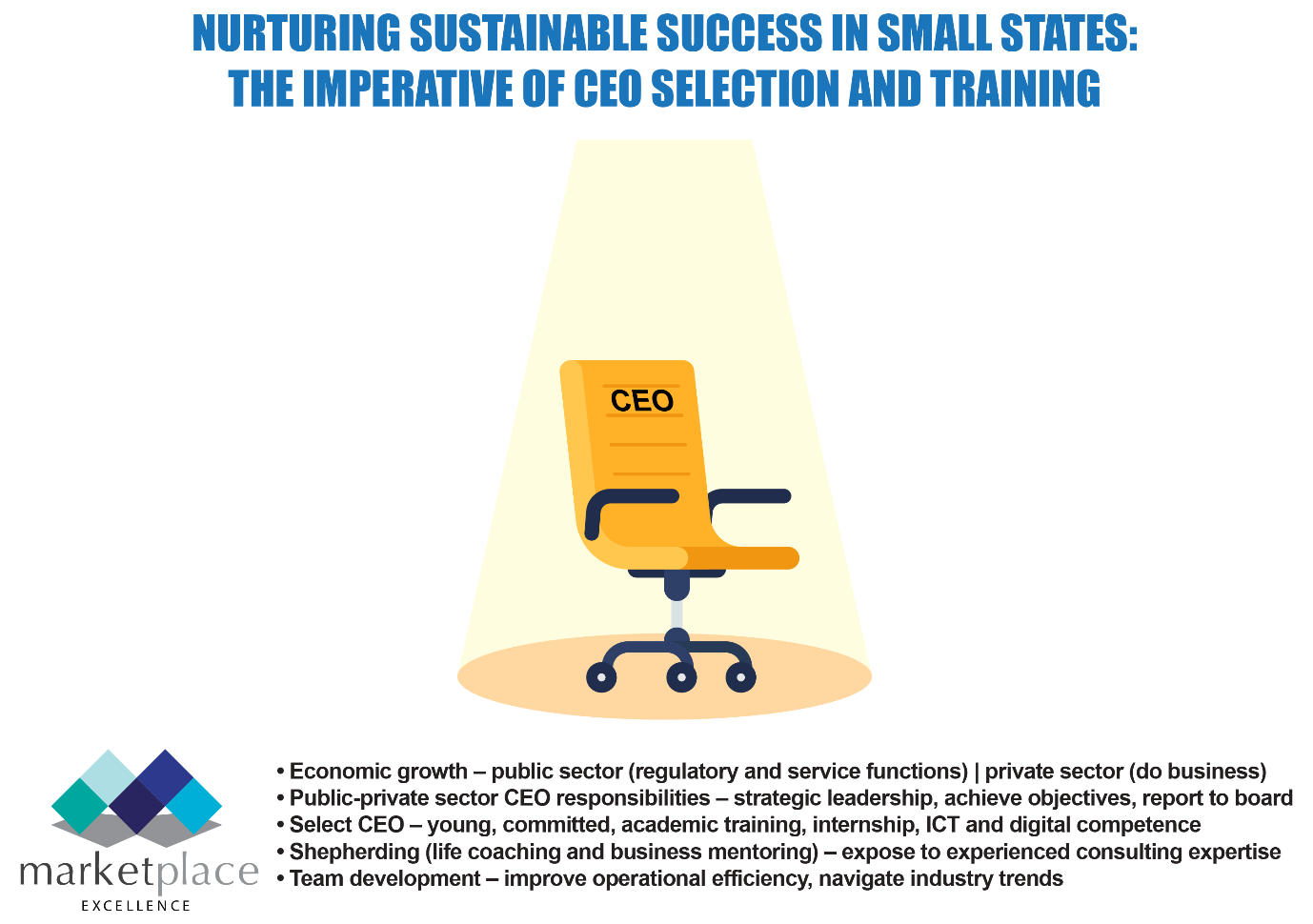“But everything should be done in a fitting and orderly way.” – 1 Corinthians 14:40
In the intricate world of business, the dynamics of economic growth is no longer a one-dimensional affair. Small states, in particular, face unique challenges and opportunities in fostering a harmonious partnership between the public and private sectors. The pivotal link in this complex network is the selection and training of CEOs who are not merely corporate leaders but visionary custodians of sustainable success.
I have observed that the very essence of a thriving small state economy lies in the hands of the CEOs who oversee it. These individuals are tasked with the dual responsibility of orchestrating strategic leadership while diligently pursuing the objectives set forth by their respective boards. Their success or failure has a profound impact on the well-being of their organizations, and by extension, the entire state.
The first step in ensuring the longevity of this partnership is the meticulous selection of CEOs. In small states, where resources may be limited and the margin for error is slender, choosing the right person is paramount. The ideal candidate should embody qualities such as youth, unwavering commitment, and a solid academic background. However, it is essential to go beyond the surface and delve into their experiences and competencies.
Interestingly, on a visit to Singapore in 1993, I learned that the CEOs of statutory corporations were selected by the corresponding ministry and advised to recommend a chairman and a board with whom the CEO could work. Whereas in the Caribbean, the chairman is usually a political appointee of the minister, thus paving a fertile path for political interference.
Internship programs and academic training alone do not suffice. CEOs need to be equipped with the skills necessary to navigate the complexities of the modern business landscape. In today’s digital age, ICT and digital competence are non-negotiable attributes. The ability to harness technology and data-driven insights can be the difference between thriving and stagnation.
Furthermore, it’s not enough to thrust CEOs into the limelight and expect them to flourish independently. To truly nurture sustainable success, they must undergo a process akin to shepherding. This involves a combination of life coaching and business mentoring, exposing them to the wisdom of experienced consultants who can guide them through the trials and tribulations of corporate leadership.
Shepherding serves a dual purpose. It not only imparts knowledge but also instills a sense of responsibility and accountability in CEOs. They become stewards of their organizations, working not just for short-term gains but with a long-term vision of success that aligns with the state’s economic growth objectives.
However, the CEO is not a solitary figure in this journey. Success is a collective endeavor, and it hinges on effective team development. CEOs must foster an environment where their teams can thrive and excel. This involves a commitment to improving operational efficiency and staying attuned to industry trends that can shape the future landscape.
In the ever-evolving business world, adaptability is the key to survival. CEOs in small states must lead by example, demonstrating a willingness to embrace change and innovation. They should foster a culture of continuous learning within their organizations, encouraging their teams to develop new skills and stay ahead of the curve, thus mapping out a seamless trail for succession planning.
The selection and training of CEOs are not mere administrative tasks but crucial determinants of sustainable success in small states. The right CEO, armed with the right competencies and guided by experienced mentors, can be the driving force behind a thriving economy.
It is a complex, delicate process, but one that holds the key to unlocking the true potential of small states in the global business arena. As we move forward, let us recognize that investing in our CEOs is investing in the future prosperity of our small states.

(Dr. Basil Springer GCM is a Change-Engine Consultant. His email address is basilgf@marketplaceexcellence.com. His columns may be found at www.nothingbeatsbusiness.com).
